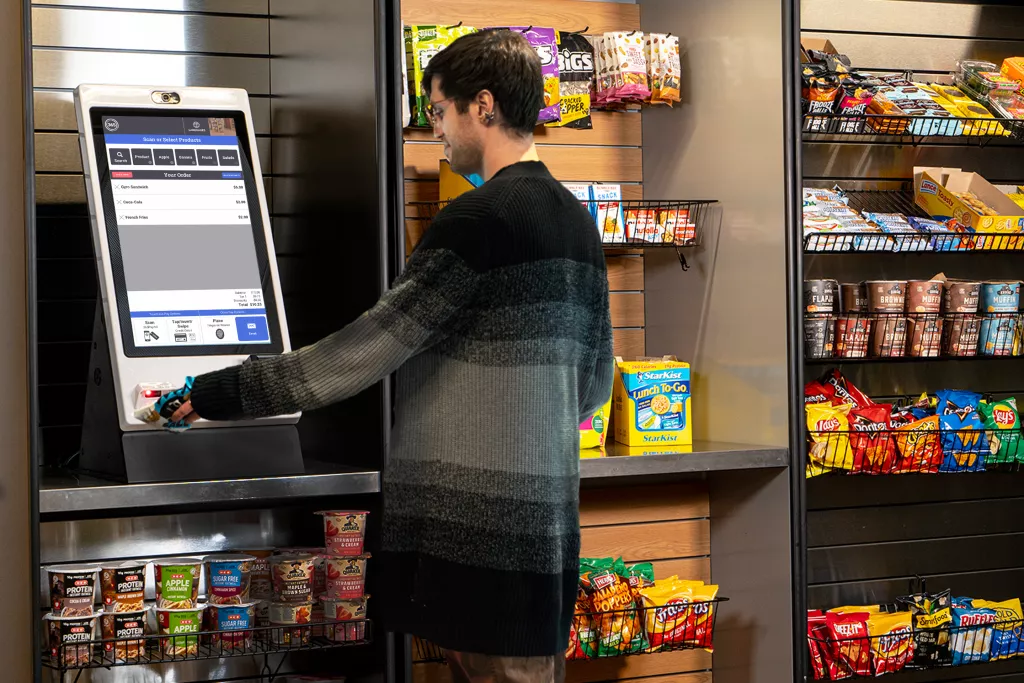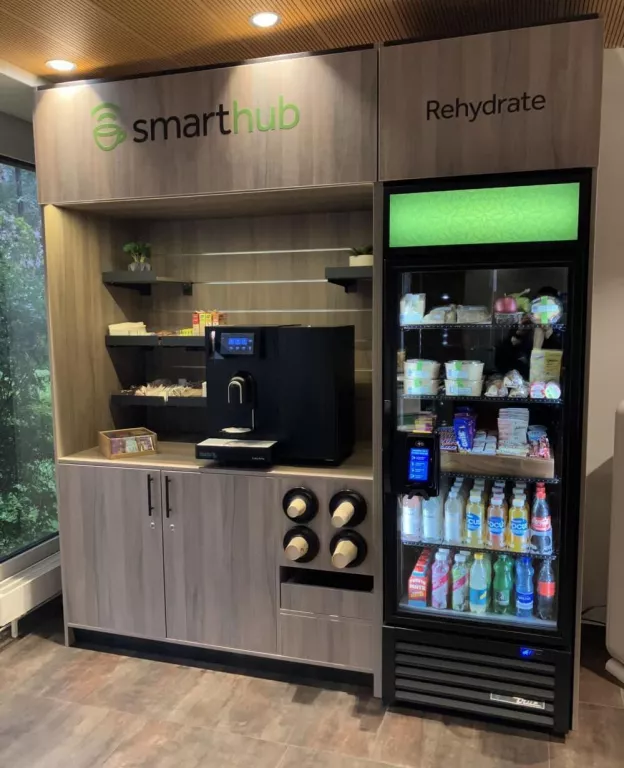Published • 21 Nov 2023
While running a vending machine business can be lucrative, more and more vending operators are looking to a new element of vending: micro markets. By adding micro markets to their product suite, vending operators can see faster profits while expediting their company growth.
Those looking to switch from a vending machine business to the broader world of micro markets might not know where to start. Here are six things to consider while building your micro market business.
1. Find Specialty Suppliers
Like vending, micro markets are mostly stocked with food and beverage options. Utilizing big box stores or industry suppliers are low-cost ways to fill out inventory while allowing operators the flexibility to gather items when they need them. 
However, micro markets can have hundreds of SKUs instead of the tens associated with a vending machine. The unique browsing layout potential with micro markets also allows for specialty items that might be difficult to offer in a traditional vending machine. Operators can source local, specialty-made products like salads and sandwiches, allowing for higher markup and sizable profits. Or they can think outside the box, getting creative with their location. Sell items like pain relievers, antacids, gallons of milk, or even fresh flowers!
2. Deploy the Right Technology
While food and drinks are the bread and butter of a micro market business, technology is what keeps everything running. It is important for micro market business operators to choose not only the right kiosk for their location, but also the right provider. Here are some things to consider as you choose a provider
Payment Versatility
Everyone likes to pay in different ways. Look for a kiosk that appeals to customers by maximizing payment options. Cash, cards, virtual wallets, mobile payments - a good kiosk offers customers flexibility.
Reporting and Analytics
Every business decision should be backed by data and the micro market industry is no exception to that. When choosing a technology partner, it’s important to have access to real-time reports when you need them. Features like daily sales, prekitting, dynamic routing, product merchandising, spoilage reports, and more all add to your micro market profits.
A Range of Kiosks
Different locations have different needs. Kiosk providers should have a large option optimized for bigger locations and a smaller option for tight locations to help you maximize return on investment. For markets with a large footprint, you can consider deploying multiple kiosks that utilize the same backend system for easy management.
Support for Success
Having a pause in service can mean hundreds if not thousands of dollars lost for micro market operators. It’s important to choose technology partners that can help within a moment’s notice, whether that be with a call to support or a dedicated account manager.
3. Manage Your Warehouse
Once suppliers and technology providers are selected, micro market business operators will need a system to help keep it all organized and running smoothly. This is where warehouse management comes in. From keeping track of inventory so you know when to restock, to routing your locations, there is a lot to manage, especially if a business is experiencing growth. It’s imperative to select warehouse management tools that aid in inventory, routing, and merchandising while also providing the analytics for all those components.
4. Optimize Your Logistics
Another main detail to consider for new micro market operators is how to service a micro market location. How often will you have to restock your location? How many customers visit each market each day? Are there specific days that sell better than others? Or locations that sell better than others?
These questions might seem overwhelming, especially when compounded with all the other essential duties when running a micro market. Fortunately, a good technology provider should help provide management systems that have sales, merchandising, and inventory management tools, making the answers to those questions available at the tip of a finger.
5. Choose the Right Fixtures
Presentation is everything! Snacks racks are a great way to display shelf-stable items with higher margins, like chips and candy. They also come in different sizes, making it easy to customize a location. Add peg displays around the kiosk to get the most out of a micro market footprint while also highlighting impulse items at the checkout point. 
With coolers and freezers, micro market business operators are primarily looking for reliability and safety. The goal should be to offer always-chilled options with long expiration dates to your customers, which helps with how often you need to rotate products. Features like a health lock will lock the cooler if it loses power - ensuring your customers don’t buy spoiled products. Gravity trays do an exceptional job with sliding beverages down to your customer for easy purchase. Keep an eye on energy-efficiency as well to show your location you care about their energy needs.
Some coolers even come with a checkout terminal attached to the front, making it an efficient standalone system when paired with a snack rack or a great additional checkout point to improve throughput in a location. Curious? This blog dives into one operator’s success with this sort of setup.
A secondary thing to keep in mind when it comes to fixtures is how attractive they look in a market. Custom branding can make a big difference to customers, providing a cohesive look and feel while they shop.
6. Combat Theft and Shrinkage
One big concern that traditional vending operators have regarding micro markets is the potential for theft. Micro markets are an honor system, so what is to prevent people from taking items and walking away?
While some theft is inevitable (most operators report spoilage related to theft as less than 2%), there are steps to take to mitigate theft. Add additional security cameras to a market, team up with third-party micro market security companies, and even try to involve the locations’ HR department. Most accounts are on board with repercussions when theft is caught. After all, they don’t want to employ a dishonest worker.
For locations outside a traditional workspace where most patrons are known, you can also consider a controlled access solution that requires payment prior to accessing the products for purchase. This still allows you to add more variety to your offerings compared to traditional vending options, while adding a layer of security.
Get Started with Confidence
365 Retail Markets is more than a technology partner. By providing customers with all the tools they need to succeed with their business, we create a promising relationship that helps operators not just grow now but grow into the future and beyond. From providing the latest in micro market technology, kiosks for every sized market, a support team available 24/7/365, inventory and route logistics, warehouse management, integrated backend management systems and more, 365 Retail Markets can help make any micro market a successful one.

